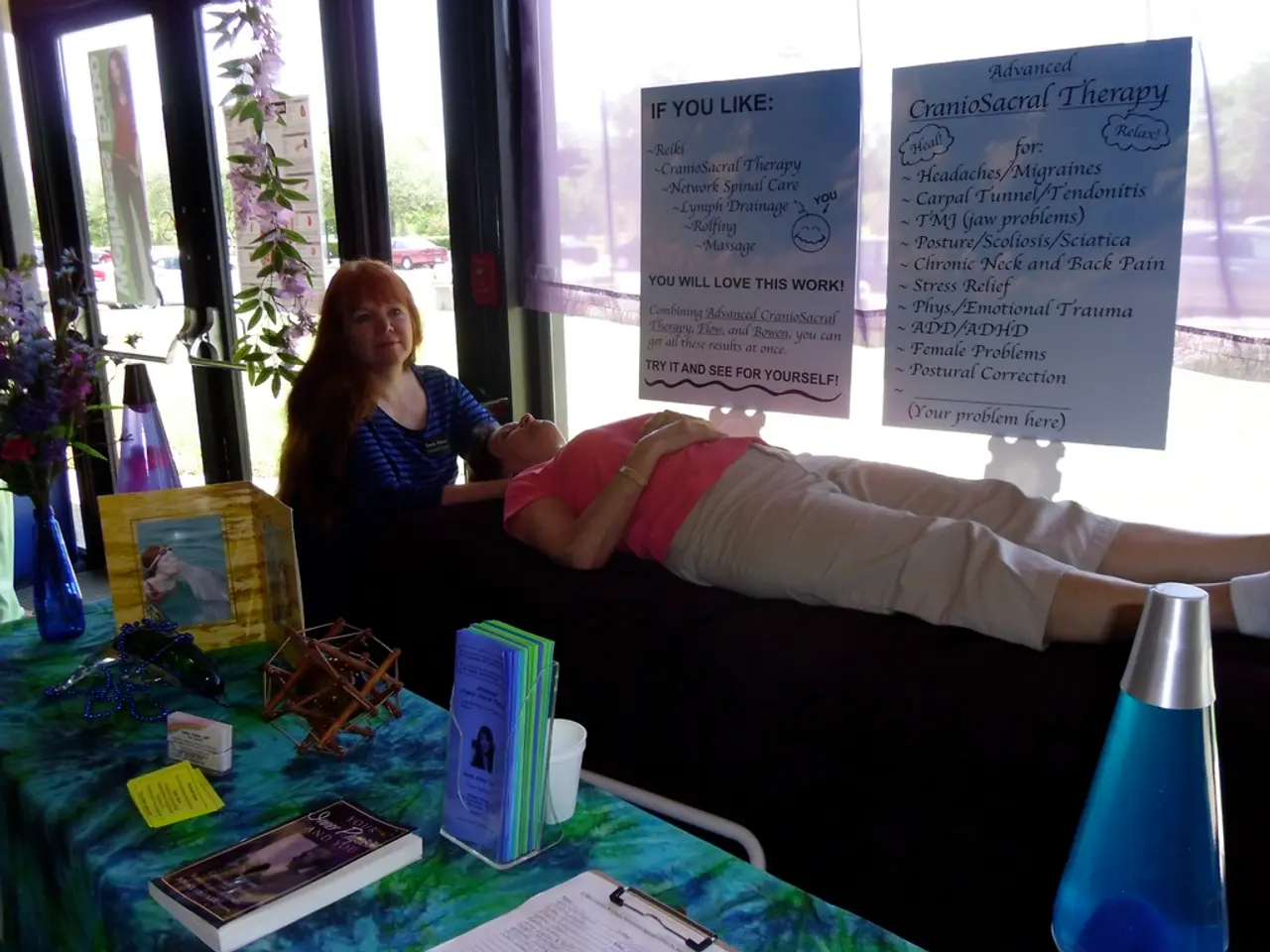Guidelines for Assisting a Person Close to You Coping with ADHD
Attention deficit/hyperactivity disorder (ADHD) affects 8.4% of children and 2.5% of adults worldwide, causing issues with attention, hyperactivity, and impulsivity [1]. This disorder can manifest in various ways, with symptoms such as difficulty focusing or sustaining attention, frequent distraction or daydreaming, problems with organization, chronic procrastination, forgetting or losing items, running late due to poor time management, impulsivity, restlessness, and emotional regulation difficulties [3][5].
People with ADHD often face challenges in completing tasks, with tendencies to want to start projects but never finish them, put things off, or feel overwhelmed by basic chores [2]. However, with the right support, individuals with ADHD can lead full and happy lives.
To support someone with ADHD, it's essential to learn about the condition, practice patience, and offer emotional support. Here are some coping strategies that can help manage these challenges:
- Exercise breaks and physical activity: Regular exercise can help reduce restlessness and improve brain calmness, making it easier for individuals with ADHD to focus [2].
- Using timers and reminders: Setting reminders on phones or using apps can help people with ADHD remember events, appointments, and tasks [4].
- Creating structured routines and organizational systems: Establishing a daily routine and keeping track of important dates and appointments is crucial for people with ADHD [4].
- Cognitive Behavioral Therapy (CBT): CBT can address negative thought patterns and improve self-esteem and emotional regulation [2].
- Mindfulness training: Mindfulness training can enhance present-moment awareness and control impulsivity [2].
- Family or caregiver education and support: Educating family members and caregivers about ADHD can foster understanding and reduce stress in the home environment [2].
- Promoting adequate sleep, nutrition, and general wellness: Ensuring a healthy lifestyle, including adequate sleep, nutrition, and exercise, is essential for supporting overall mental health [2].
- A buddy system or body doubling: A buddy system or body doubling can help people with ADHD focus on tasks and projects [6].
It's important to note that people with ADHD might resist additional reminders, feeling they want to be in control. In such cases, finding a balance between offering support and respecting their autonomy is key [4].
Furthermore, encouraging treatment for ADHD, including medication and therapy, is important for managing symptoms [7]. Services like FocusMate offer a buddy system for people with ADHD, providing a supportive environment for completing tasks [6].
People with ADHD often feel overwhelmed and hopeless due to their inability to meet societal norms. Offering emotional support can significantly improve their life, helping them navigate the challenges of the disorder and live fulfilling lives.
Women with ADHD can find support in understanding their condition, practicing patience, and seeking attention from mental health professionals and health-and-wellness organizations. Routines and organizational systems, such as setting reminders, creating structured routines, and using cognitive behavioral therapy, can help individuals with ADHD focus better and cope with anxiety. Engaging in physical activities like exercise breaks and mindfulness training can assist in reducing restlessness and improving brain calmness.
Resources like FocusMate offer a buddy system to help people with ADHD complete tasks and projects more efficiently, while a healthy lifestyle including adequate sleep, nutrition, and regular exercise is essential for overall mental health. Education and support for family members and caregivers can foster understanding and reduce stress in the home environment.
However, it's important to respect the autonomy of people with ADHD and avoid overloading them with reminders. When embracing science-backed strategies like these, people with ADHD can move forward with greater confidence, alleviating the emotional struggles associated with managing the disorder. Essentially, focusing on mental health and well-being can lead to a better quality of life for individuals with ADHD.




